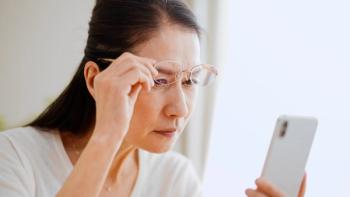
- May 2014 Skin & Eye Health
- Volume 80
- Issue 5
Medications May Be Less Effective Outside Clinical Trials for Glaucoma Patients
Although clinical trials have indicated that intraocular pressure-lowering medications are effective in patients with open-angle glaucoma, new research suggests that the medications may not be as effective in real-world settings.
Although clinical trials have indicated that intraocular pressure (IOP)-lowering medications are effective in patients with open-angle glaucoma, new research suggests that the medications may not be as effective in real-world settings.
The study, published in the April 2014 issue of JAMA Ophthalmology, assessed the effectiveness of IOP-lowering medications in patients with primary open-angle glaucoma who were taking up to 3 medications from multiple ophthalmology clinics. IOP was measured while patients were using their usual medication to lower IOP. Patients then washed out all IOP-lowering drops, and pressure was measured again 2 to 4 weeks later.
The results indicated that discontinuation of IOP-lowering medications was associated with a significant increase in IOP. After medication washout, pressure increased on average by 5.4 mm Hg among patients taking 1 medication, 6.9 mm Hg among those using 2 medications, and 9 mm Hg for those using 3 medications.
However, a substantial proportion of patients only experienced small changes in IOP after medication washout. After medication discontinuation, IOP increased by <25% among 38% of patients using 1 medication, 21% of those taking 2 medications, and 13% of those using 3 medications.
The results suggest “either that [patients] were not using the medication effectively or that the medication itself, although used properly, was not lowering the IOP,” the study authors conclude.
Articles in this issue
over 11 years ago
Pharmacists Should Control Medical Cannabisover 11 years ago
Living with Psoriasisover 11 years ago
Newer Tanning Beds Still Linked with Melanoma Riskover 11 years ago
Internet Remedies for Skin Cancer Mostly Harmfulover 11 years ago
Antibiotics Used Longer than Needed to Treat Acne in Some Teensover 11 years ago
Blindness Declining in Well-Developed Countriesover 11 years ago
Pet Peevesover 11 years ago
Can You Read These Rxs?over 11 years ago
Case Studiesover 11 years ago
Childhood ADHD Linked with Teenage ObesityNewsletter
Stay informed on drug updates, treatment guidelines, and pharmacy practice trends—subscribe to Pharmacy Times for weekly clinical insights.


























